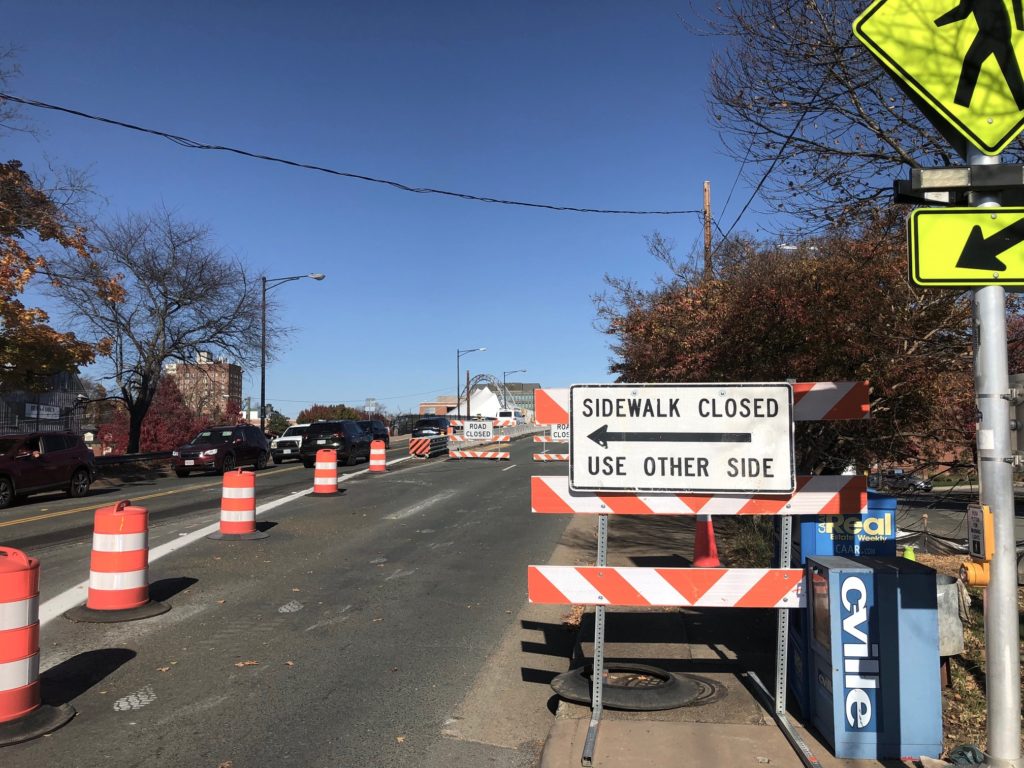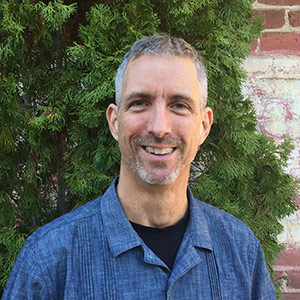Charlottesville and Albemarle are in the midst of major planning efforts, and both are thinking about their capital budgets, which is a big part of how those plans get implemented. At this time, the two localities seem to be heading in different directions when it comes to quality-of-life infrastructure.
I will start with Charlottesville, where the situation is a bit more urgent, and then I will give a quick update about Albemarle.
Charlottesville passes its Comprehensive Plan…

On November 15, Charlottesville City Council unanimously approved the city’s revised Comprehensive Plan. The new plan aligns with PEC’s long-standing efforts to improve quality-of-life by promoting walkability, transit and everyday access to parks and nature. Indeed, the word “walk” appears in the document 70 times—that’s almost every page!
PEC ultimately supported the plan because it focuses development in areas and corridors that are close to jobs, schools, shopping, and services, which is necessary if we are to improve the quality of life for all residents, preserve rural areas, protect natural resources, and make meaningful progress on climate action. Many of the details still need to be worked out when the zoning code is revised next year.
Read the full plan here.
…but Charlottesville’s budget does not fund the infrastructure that the plan calls for.
Unfortunately, the city’s current proposed budget does not reflect several of the critical issues that make the comprehensive plan appealing. In fact, the plan’s vision for livable density depends on walkability and everyday access to the outdoors. Yet, the proposed Capital Improvement Program has zero funding for new sidewalks and cuts spending on parkland and trail development in HALF.
It should be noted that these cuts come on top of what was already a very cautious approach to spending in the face of Covid-19, despite the increasingly evident connection between our health and public access to nature.
What you can do if you live or work in Charlottesville:
Crafting a budget is no easy task, and the numerous priorities that need to be balanced include schools and public housing that have suffered from generations of underinvestment. But that is also true of the city’s sidewalks and other mobility infrastructure, which is why walking and biking in many parts of Charlottesville are so unappealing or even dangerous. The city must work to make progress on all of its infrastructure needs. Disinvestment will have significant negative consequences, while a moderate investment now will yield tremendous future dividends.
Next week, people living or working in Charlottesville have an important opportunity to make the case for sidewalks, trails, parks, tree canopy restoration and other forms of green infrastructure at a public hearing on the City’s Capital Improvement Program.
Charlottesville Planning Commission Public Hearing
on the Capital Improvement Program
Tuesday, December 14, 2021 6:00 PM
[Zoom Meeting Info/Signup]
[Proposed Capital Improvement Program | Budget Meeting Schedule]
It would also be extremely helpful for you to contact the City Council and the Planning Commission and make your arguments directly. We know that it is not easy to speak in public or even to figure out what to say. We have created an advocacy resource document to help you.

Albemarle County is revising its Comprehensive Plan and appears serious about funding priorities.
Albemarle is also updating its Comprehensive Plan, a process that should kick into high gear in 2022. The first topic will be the county’s Growth Management Policy, which steers new development into well-defined areas with services and amenities and sets aside the rest for agriculture, forests and natural systems. I will certainly have more information about this early next year, and it is safe to say that your input will be important. For now, you can watch the staff presentation here (skip to item 10 / 1:37:35) or read these notes.
Albemarle has taken a forward-looking approach to its budget, making a multi-year commitment to quality-of-life investments such as sidewalks, greenways and parks in its urban development areas. I have not seen the final numbers but I have heard, for example, that the county is allocating millions of dollars for future phases of Biscuit Run Park, slated to open in the fall of 2022. The county has also unfrozen the work and hiring decisions previously suspended due to COVID. Here is a list of some transportation projects the county is working on.
For now, I think the most productive thing you can do is thank the Board of Supervisors (and Planning Commission) for focusing on quality-of-life, encourage them to build on that, and remind them about what you value most, such as sidewalks and trails, land conservation, climate action, and/or water quality. It’s always a good idea to be in touch with your elected officials.
We are one community.
Our lives and the qualities that make our community a great place to live transcend boundaries. That’s why it makes sense for the city, the county and the University of Virginia to collaborate on issues like housing, transportation and environmental stewardship.
I am excited about the many ways they are working together on transportation, such as the Regional Transit Partnership and the proposed Rivanna River pedestrian bridge (more about that in an upcoming blog post!). I would love to see us redouble this collaborative approach.
I look forward to seeing you! Whether it be in a public meeting or on a public trail, the example you set inspires me and those around you.
Sincerely,
Peter Krebs
Albemarle and Charlottesville Community Organizer
pkrebs@pecva.org

P.S. Save the date for the second annual Piedmont Mobility Summit, Monday, February 28, from 10 a.m. to 3 p.m. This Zoom-based summit will build upon the excellent projects and momentum that began in 2021. The summit is free and open to all but registration is required.
